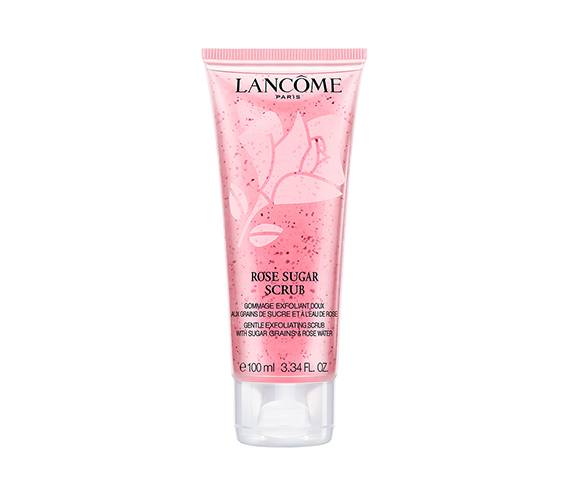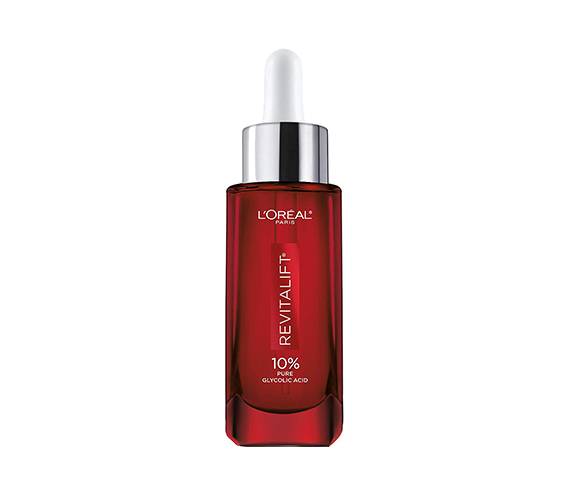Physical vs. Chemical Exfoliation: What’s the Difference?
November 25, 2020Exfoliating is a must-do step in your skin-care routine because it sloughs away dead surface skin cells, gets rid of pore-clogging debris and helps reveal a brighter, smoother complexion. But with both physical or mechanical exfoliators like scrubs and chemical exfoliators like acids on the market, it can be tricky to figure out which type of product (or combination of products) is best for your skin. To help break down the differences between chemical and physical exfoliants, we turned to board-certified dermatologists Dr. Elizabeth Houshmand and Dr. William Kwan and licensed medical aesthetician Bre Knouse.
What Is Exfoliation?
“The life cycle of a cell is about three months in children and only about 30-50 days in adults, which means our cells are dying a lot faster as we age,” says Knouse. “This leads to dead skin cell build up, clogged pores, dryness, dull complexion and rough texture.” That’s where exfoliation comes into play.
Dr. Houshmand explains that exfoliation, both physical and chemical, can speed up the cell renewal process and help get rid of rough or uneven skin texture that is more prevalent with age. “New skin cells are fresh and leave your skin feeling smoother and softer,” she says.
What Is Physical Exfoliation?
“Physical exfoliation is using something abrasive on the skin like a sugar or salt scrub,” says Dr. Kwan. While sugar and salt are common granules used for exfoliation, some physical exfoliators can also incorporate beads or grains.
Physical exfoliators often show immediate results and won't interfere with ingredients in most of your skin-care routine. That said, they can be harsh and cause micro-tears in the skin, so make sure your skin can tolerate both the product and frequency. “Some patients take physical exfoliation too far and do it daily,” says Dr. Houshmand. “This can actually inflame the skin because physical exfoliation can be too harsh for some skin types.” If you want to use physical exfoliators, it’s best to use them only twice a week and reach for a formula that’s gentle and not too abrasive. We like the Lancôme Exfoliating Rose Sugar Scrub.

What Is Chemical Exfoliation?
The chemical exfoliator category refers to beta-hydroxy-acids (BHAs), such as salicylic acid, and alpha-hydroxy-acids (AHAs), such as lactic and glycolic acids, which give your skin a mild exfoliation. “Chemical exfoliators are often more gentle for sensitive skin,” says Dr. Houshmand. “AHAs work by melting the glue that attaches the dead skin cells to the outer layer of the skin, while BHAs are oil-soluble ingredients that go deeper into the skin and pores for a thorough cleanse.”
Dr. Houshmand explains that AHAs are a great pick for sensitive skin because they don’t cause irritation like a physical scrub, whereas BHAs are particularly good for those with acne-prone and oily complexions because they can detox pores and remove bacteria. For an AHA, we recommend the L’Oréal Paris Revitalift Derm Intensives 10% Pure Glycolic Acid. Looking for a BHA? Try the Vichy Normaderm Phytoaction Daily Deep Cleansing Gel, which is formulated with salicylic acid.

While chemical exfoliation is more gentle, the results won’t be as noticeable as quickly as those of physical exfoliation. Dr. Houhsmand says that you likely won’t see results for one to two months. It’s also important to use a sunscreen every morning, especially when using a chemical exfoliant. One we love is the SkinCeuticals Physical Fusion UV Defense SPF 50.
Which Exfoliant Is Right for Me?
While you can use both a chemical and physical exfoliator in your skin-care routine, be careful not to over-exfoliate and dry out your skin. “Incorporating at least one exfoliator into your skin-care routine will leave you with a clearer, smoother and brighter-looking complexion,” says Dr. Houshmand. “Which type of exfoliator you use really depends on your goal and your skin type.”
For example, someone with sensitive skin likely won’t be able to tolerate a physical scrub, but may be able to use glycolic acid in moderation. Just make sure to pick products specific for your skin type and consult with a board-certified dermatologist if needed.
Photo: Drew Richards
Read More:
This Is What’s Actually Coming Out of Your Pimple When You Pop It
Derm DMs: Can You Use Body Lotion on Your Face?
This Is Why You Get Dry Skin Around Your Nose


